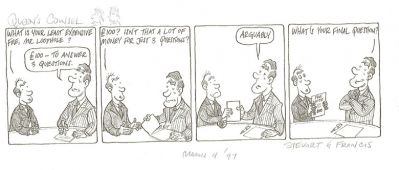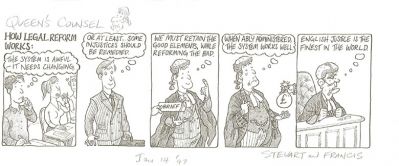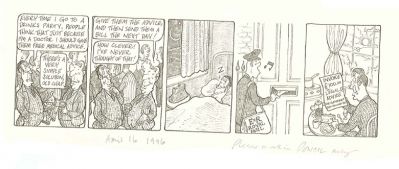Those of us who work in the legal costs world have countless stories of last minute costs settlements where the other side crumbles at the last moment. In fairness, both claimants and defendants are probably equally to blame. Naturally, the closer a matter gets to a final hearing the more it focuses the parties’ minds. The same behaviour can be seen in substantive litigation with door-of-the-court settlements. However, in costs matters, this problem is usually due to a failure by someone appropriately experienced to consider the merits of a case at an early stage. Instead, a proper analysis is often only undertaken very late in the day. The following recent example is by no means the worst case I have seen.
A personal injury claim was settled in June 2007 and the Claimant subsequently presented a schedule of costs totalling about £21,000. The Defendant offered £7,800 in August 2007. The Claimant made a counter-offer of £13,500 in September 2007. The Defendant made a final offer of £8,500 in November 2007 which was rejected. A Bill of Costs was served totalling about £23,000.
At this stage Gibbs Wyatt Stone were instructed to act for the Defendant. We advised against increasing the Defendant’s offer and drafted Points of Dispute requesting disclosure of the Claimant’s CFA. These Points of Dispute were served in December 2007. In January 2008 Replies were served which declined to give disclosure of the CFA. After further communications the CFA was eventually served in March 2008. It was clear that there were serious issues as to the validity of the CFA. Supplemental Points of Dispute were served in April 2008 challenging the validity of the CFA. The Claimant made a further settlement proposal of £12,300 in May 2008. In February 2009 the Claimant served Replies to the Supplemental Points of Dispute that claimed the CFA was valid.
In March 2009, having paid a court fee of £600 for the privilege, the Claimant requested a detailed assessment hearing. The Court issued directions requiring the parties to hold a joint discussion to narrow the issues. The parties undertook the joint discussion and prepared a joint statement identifying the issues still in dispute.
The Court listed the matter for a pre-hearing review in June 2009. Two days before the hearing the Claimant contacted the Defendant seeking to accept the Defendant’s offer of £8,500 made back in November 2007. After further discussions, settlement was agreed at £7,500 to allow for a contribution to the Defendant’s costs that had been incurred since the offer in November 2007. Once the Claimant had paid the court fee, their costs draftsman’s fees for preparing the Bill and the other costs incurred between November 2007 and June 2009, the Claimant probably recovered something in the region of £4,500 net as against the offer of £8,500 previously made by the Defendant.
Running a case all the way to assessment and losing is one thing but marching all the way to the top of the hill only to march back down again is less easy to understand.
Feel free to post your own favourite examples.



